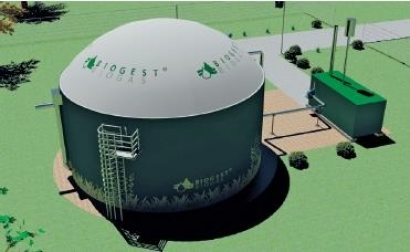
Home to more than seven million hogs, North Carolina is the second largest pork producing state in the country. Eastern North Carolina, which relies heavily on farming and agriculture, has long been a major producer of hog waste. By building a biogas plant on local farms, GESS creates an eco-friendly energy source that reduces waste odor and soil/water pollution, and whose byproduct, through anaerobic digestion, produces organic fertilizer. The result is clean gas that can be sold to energy companies and converted to electricity. The process helps to create a strong relationship between GESS International and local communities and farmers.
According to the EPA, there are six benefits to biogas: diversified farm revenue, rural economic growth, conservation of agricultural land, energy independence, sustainable food production, and farm-community relationships. Another benefit of hog waste conversion to clean energy is minimizing or potentially eliminating waste contamination when natural disasters strike. Having recently filed with the NC Utilities Commision for the construction of plants that will each represent an investment of about $30 million and employ 16-19 people, GESS continues to encourage job growth in many Eastern Carolina counties, build relationships with energy companies looking to purchase the low-cost energy alternative, and invest in local farming towns.
GESS International is the lead sponsor of 2018’s BioCycle REFOR conference to be held in Raleigh, North Carolina, October 15-18. The event brings together business people and thought leaders from around the country working to advance the economic and environmental benefits of bioenergy.

